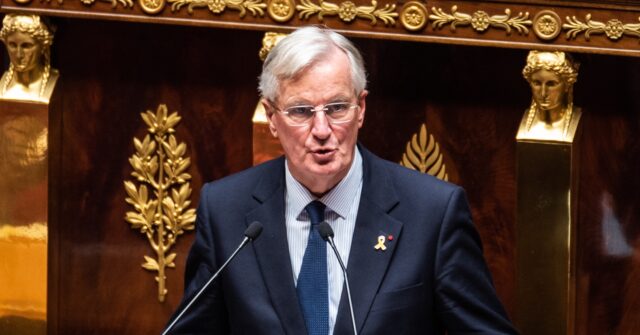On a recent Tuesday, an attempt by leftist factions in France to topple the new government led by Prime Minister Michel Barnier culminated in a failed no-confidence motion, garnering merely 197 votes—far fewer than the 289 needed to trigger a governmental collapse. This initiative, emerging from the left-wing coalition known as the New Popular Front (NFP), which includes the Communist Party, Socialists, Greens, and Jean-Luc Mélenchon’s radical La France Insoumise (LFI), was emblematic of a political catharsis rather than a serious challenge to Barnier’s administration. The NFP’s call for censure stemmed from their dissatisfaction with President Macron’s refusal to appoint their preferred candidate, an unelected socialist economist, to the position of Prime Minister.
While NFP leaders expressed outrage over Barnier’s appointment, the right-wing National Rally, the largest party in the National Assembly, chose not to support the left’s censure bid, reflecting a strategic decision to reserve oversight actions for when they genuinely perceive governmental misconduct. National Rally lawmaker Guillaume Bigot emphasized that censure should not be a commonplace act but reserved for serious breaches impacting French interests. This stance illustrates a contrast between the cautious approach of the National Rally and the more fervent reaction of the leftist factions, who feel aggrieved after a recent electoral setback despite winning the most seats in the legislative elections.
The NFP’s argument against Barnier’s government was rooted in an alleged affront to democracy due to his appointment and their grievances over election dynamics, suggesting that their coalition was unjustly marginalized. Despite their claims, the wider electoral support for the National Rally indicates that their position lacks the broad backing needed to effect substantial political change. The left’s dissatisfaction thus seems fueled by a mix of ideological rigidity and a tendency to discount the larger electoral landscape favoring other parties, demonstrating an incongruence in the political narrative they seek to construct.
The NFP’s leader, Olivier Faure, expressed harsh criticism during the National Assembly, asserting that Barnier should never have been appointed and denying the legitimacy of his government. The perceived allegiance of Barnier’s cabinet to Macron’s political program exacerbated tensions, with NFP members accusing it of yielding to far-right influences. This critique, however, appeared largely unconvincing given the sparse attendance at the no-confidence motion and the lack of significant bipartisan support. In fact, other prominent government figures notably abstained from the debate, further underscoring the political isolation of the NFP’s efforts.
In a follow-up address after surviving the no-confidence vote, Barnier acknowledged the precarious nature of his government, which does not hold an absolute majority. His survival this time does not imply a permanent reprieve; challenges lie ahead, particularly amidst looming financial controversies tied to France’s increasing debt levels. The depth of divisions within the National Assembly could surface more prominently during budget negotiations, indicating that risks for Barnier’s administration still loom despite this current victory.
Looking into the future, political forecasters, including Marine Le Pen from the National Rally, predict further electoral shifts could occur by next year when the prohibition on new legislative elections imposed on President Macron ends. Such predictions indicate a complex context for sustaining governmental support, potentially requiring concessions from Macron on contentious issues like immigration. The inter-party dynamics in this fragmented political landscape thus suggest that while Barnier has temporarily weathered the storm, the government’s stability remains uncertain as future challenges await.

